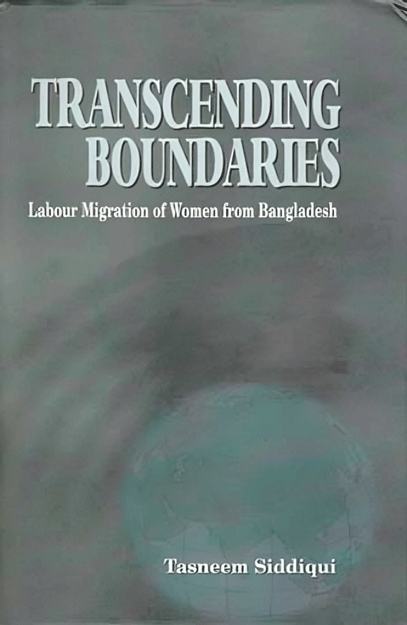
- Shop
- Transcending Boundaries: Labour Migration of Women from Bangladesh
Transcending Boundaries: Labour Migration of Women from Bangladesh
https://uplbooks.com/shop/984051593-transcending-boundaries-labour-migration-of-women-from-bangladesh-6554 https://uplbooks.com/web/image/product.template/6554/image_1920?unique=90f5a49
| Language: English |
Tags :
Book Info
In recent times, a major restructuring of the global economy has taken place. This, among other things, has resulted in an increase in short-term migration of labour. An important feature of such restructuring is the higher demand for female labour. More and more women from developing countries are joining the short-term international labour force, to the extent that a trend of feminisation is emerging in this labour force. A large number of Bangladeshi women have also responded positively to such demand and joined the labour markets of the Middle East and South East Asian countries. This book is an attempt to understand the nature, scale and scope of female migration from Bangladesh. It identifies the major determinants and consequences of such migration through an analysis of economic and social costs and benefits derived from it. The book finds that there exists a major contradiction between state policy and the ground realities of female migration. Successive governments in Bangladesh have pursued a policy of either restricting or placing a ban on migration of certain categories of women. However, such policies of government could hardly stem the flow of different categories of women from taking up employment beyond the national boundary. On the contrary, they have contributed to irregular migration, and to a large extent, made potential women migrants vulnerable to trafficking. Civil society organisations have also failed to appreciate women's motivation to migrate and provide demand-driven services to them. The author argues that it is about time that the state, non-government and other civil society organisations respect women's decision to migrate and play a facilitating role.

Tasneem Siddiqui
Tasneem Siddiqui is an Associate Professor in Political Science at the University of Dhaka. She earned her first degree from Dhaka University and Ph.D. from Griffith University, Australia. Her research interest includes nongovernmental organisations, gender issues and migration. She is actively involved with the Dhaka University-based Refugee and Migratory Movements Research Unit since its inception.


